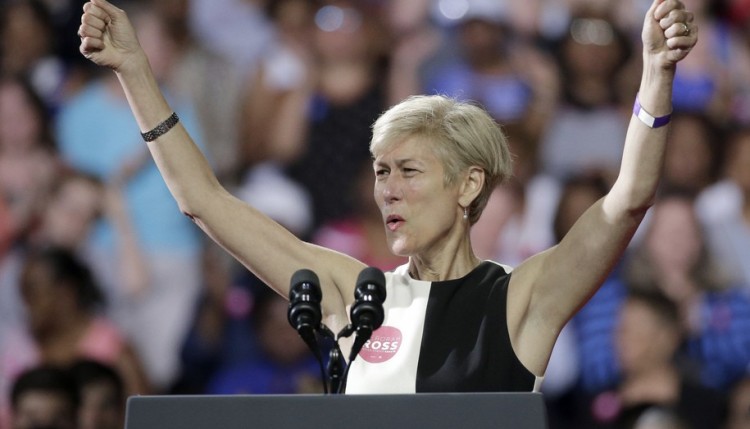
Vote for the Girl
Last week, a panel hosted by Wake Forest spoke on Violence Against Women. The panel featured Deborah Ross, one of the candidates running for Senate in North Carolina. However, Ross’s main discussion point was not on violence against women, but rather on the impact of women in office. To make her point, she discussed domestic violence laws. In the past, civil laws dealing with domestic violence excluded children whose parents were being charged. Women in the House of Representatives brought up the issue and met about the problem to change the laws. Ross argued the change wouldn’t have been possible without these women. Experiences greatly influence what people care about and different genders have different experiences. If half of the population is female, Ross questions why politics fails to mirror these statistics. She is eager for a day where women are equally represented, so more policies reflect the experiences of females.
This raises the question: why is there not an equal ratio of men to women in office? Schneider and Bos’s study explores the impact of gender stereotypes in political campaigns. The study found that “voters [view] female politicians as having more liberal beliefs than male politicians” (Schneider and Bos 246). For this reason, female candidates were more likely to be successful running in the Democratic party and less likely to win in the Republican party. Also, female politicians were found to be viewed as a “subtype of women,” whereas “male politician stereotypes…overlap greatly with male stereotypes” (253). To be noted, the subtype does not include the positive traits, like caring, compassionate, and affectionate, that are associated with females. In fact, the study found that female politicians have “twice as many ‘negative female leader traits’ as women” (254). Furthermore, there is evidence to believe “Republicans are viewed in masculine terms whereas Democrats are viewed in feminine terms” (262).
Altogether, the study suggests that Ross may be at an advantage, compared to a male counter, in this year’s Senate election due to her gender and status as a Democrat. If the voters are informed, the same goes for Hillary Clinton; however, gender may not be an advantage for the Republican female candidates. To answer Deborah Ross, if women are to hold office at the same frequency as men, stereotypes against female politicians must be dismissed. Associations between masculinity and the Republican party must be put to rest. You, Deborah Ross, may be at the advantage due to these stereotypes, but the same doesn’t go for the opposing party.